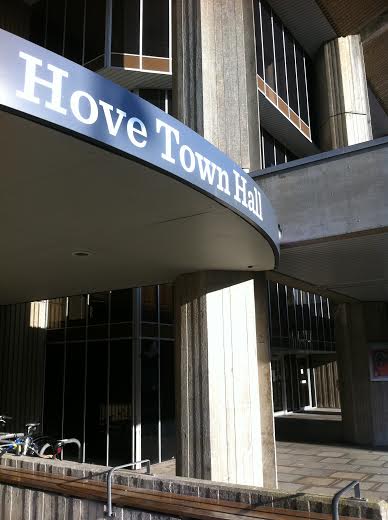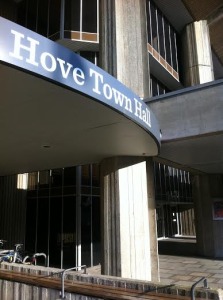Unions have criticised Brighton and Hove City Council after it emerged that more than one in ten employees was on a zero hours contract last year.
More than 600 people were employed on zero hours contracts out of a total workforce of almost 4,300, according to the council’s Human Resources and Organisational Development Annual Report 2016-17.
The report said: “This figure does not include schools or those who have a contracted role as well.”
A further 4,800 people work in local authority maintained schools across Brighton and Hove.
Of the 608 workers employed on casual contracts during the year to the end of March, 50 were transferred “from casual employment to contractual employment”, the report said.
Workers on casual contracts are paid by the hour rather than a regular monthly salary and often do not have a consistent number of hours of employment week by week.
The Unison and GMB trade unions criticised the Labour-led council for having so many people working on zero hours contracts.
GMB branch secretary Mark Turner called it a “staggering” number and said: “We would expect this current administration to erode it since it’s been going on for a number of years, even under the previous administration – so we’ve had two socialist councils using casual contracts.”
The current Labour leadership and previous Green administration belong to political parties that promised to ban zero hours and casual contracts in their election manifestos this year and in 2015.
Mr Turner said: “In our view, from the work we’ve done, a considerable number are actually employees so in our view the council should be putting them on real contracts.
“Zero hours contracts are outdated and a poor way to deal with and use individuals in our society.
“The GMB will fight and challenge these contracts. They are predominantly used in adult social care – and in the museums which the council is trying to offload on to a trust.”
Unison’s Brighton branch said that zero hours contracts offered no security and no possibility of long-term planning for those on them.
The union said that the idea that zero hours contracts could benefit workers through such perceived perks as flexibility “has been a myth in our experience”.
The council said: “The council’s casual workforce comprises individuals working in areas such as security, events (and) care as well as contact supervisors and electoral staff.
“It provides valuable additional resources to meet fluctuating service needs with individuals who are trained by the council.
“It offers flexibility for those who want it and a pathway into permanent employment for others.
“Individuals are regularly transferred or recruited to temporary or permanent vacancies as our monitoring identifies changes to their employment status.”
The Human Resources and Organisational Development Annual Report was presented to the council’s Audit and Standards Committee.
For the committee agenda and the annual report, click here.










It’s funny how Labour and the Greens are so critical of private-sector businesses using zero-hours contracts but rely them on so heavily themselves. Looks like a case of ‘do as I say, not as I do’. The Brighton Centre is a good example of why it would be crazy to scrap zero-hours contracts though. They need dozens of casual staff for shows and conferences but it would make no sense to employ those people full time. The flexible approach permitted by zero-hours contracts means the Brighton Centre management have a pool of people they can call on and who they know and are CRB-checked for things like the annual schools Christmas concert. Many of those people have other jobs and can use the casual work at the Brighton Centre flexibly when they want. It mostly works well for the management and those on the zero-hours contracts. There is, of course, a case for having sensible rules to stop managements unfairly exploiting such staff but an absolute ban would be costly and unhelpful.